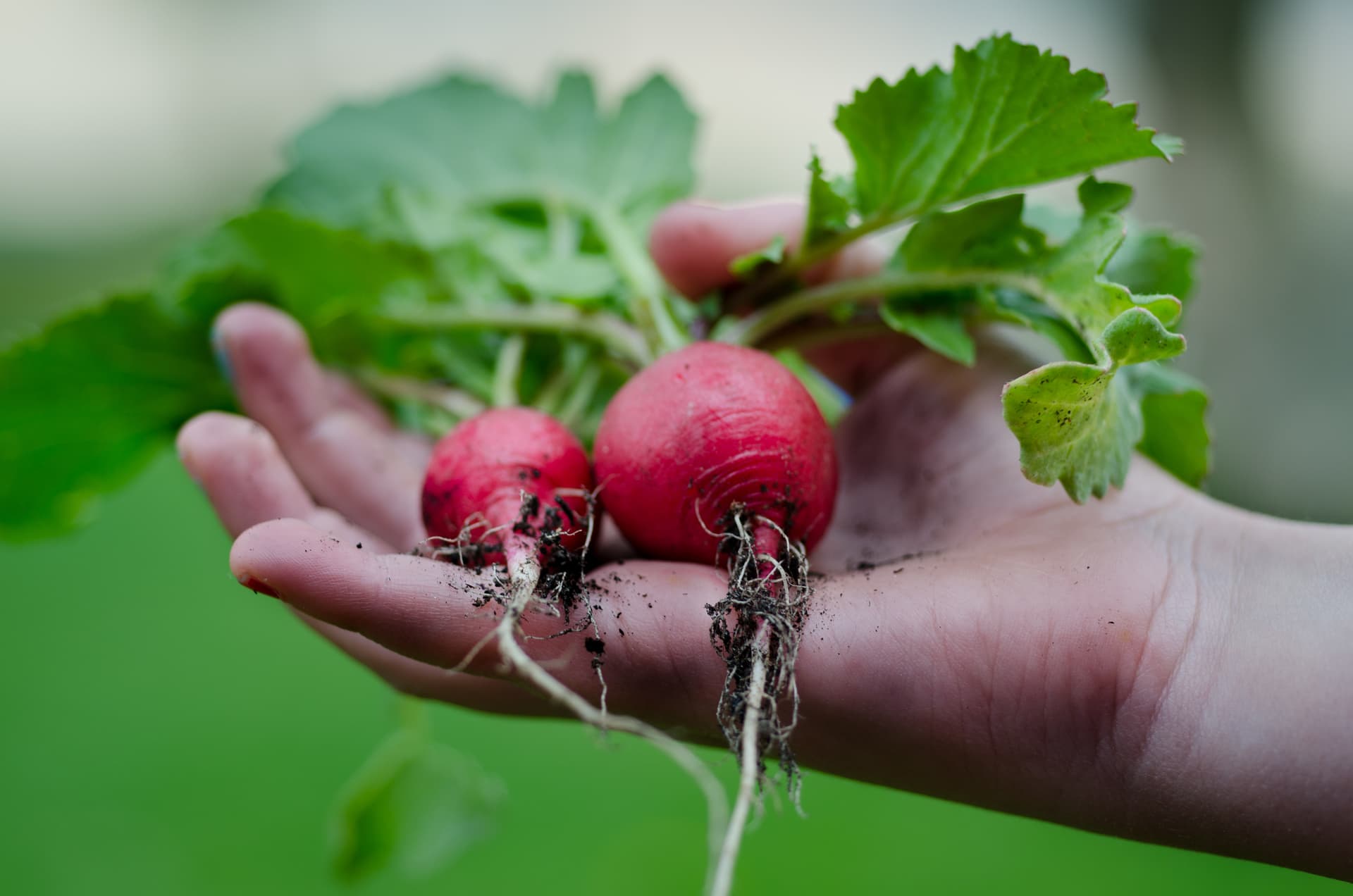
How to Buy Local and Seasonal Food
Have you ever heard of the terms “buying local” or “eating seasonally”? For many people, the terms may conjure up images of farmers markets bursting with fresh produce, local honey, and homemade goods. To some, the terms may suggest spending a lot of money or time to find and buy food!
But what if I told you that shopping locally and seasonally could allow you to access more nutrients, support local farms, and even save money? Read on…
Why Buy Local?
- When you buy from a local farmer, you get to know the story. Have you ever questioned what the words “all-natural” stamped on a package of chicken thighs actually means? Sure, the package may be a “natural” color (green or brown), and there may be a cute cartoon picture of a barn, but it can be tough to know where that chicken actually came from, and what conditions it was raised under. In fact, a well-known grocery chain was recently under fire for loosely using marketing lingo like “cage-free” to sell meat from chickens raised in close confines, with hardly any access to the outdoors. Now compare that scenario to buying chicken thighs (or better yet, the whole chicken) from a local farmer who raises TRULY pastured chickens. Many farmers will even let you stop by the farm, so you can see the conditions for yourself. This can be a great educational opportunity for a family, and will allow you to create a relationship with the person who provides you with your food. Which leads us to the next point…
- You get to support your local farmers – farmers who are raising animals ethically and using sustainable farming practices. Some local farming programs, like The Food Initiative, even run youth programs to teach high schoolers about health, service, entrepreneurship, and sustainable farming. By supporting these organizations, you can access fresh, local, organic produce AND contribute to your community.
- The food is fresher, and it tastes better. Most store-bought produce travels hundreds (sometimes thousands) of
miles before it gets to you. That means days of a tomato sitting around after it has been picked. And that’s not considering the time it took to package the produce, or the time it sat on the grocery store shelf.
- You can save money. Grocery stores (especially natural foods stores) can put hefty price tags on organic meat and vegetables. But you can often find much better deals at farmers markets, or by going directly to a farm. If you want to save a LOT of money (per pound) on meat, ask a local farmer about buying a quarter or half cow!
Action Steps:
- Visit your local farmers market and write down the deals you find. Engage farmers in conversation about how they raise their animals or grow their produce.
- Go to the websites eatwild.com or localharvest.org to find local farms near you. Call or email the owners.
Why Buy Seasonal?
- It’s better for you! Studies have demonstrated that vitamins and minerals slowly start to deteriorate after produce has been picked. Say you live in Tennessee and feel like having fresh tomatoes in January. The only way you will be able to access those tomatoes is by buying tomatoes from the grocery store, which have been grown and shipped from another state or country. So even though those tomatoes may have had a lot of vitamin C when they were first picked, they are going to have far less vitamin C after days of sitting in a truck and then on a grocery store shelf! However, when you buy tomatoes in season for your area, you will be able to access them locally. They will be fresher, full of more nutrients, and healthier for you!
- It will help you eat a larger variety of vegetables and fruits. At MaxWell Clinic, we understand that food can be medicine. All fruits and vegetables contain a wide range of micronutrients (vitamins and minerals) that are all incredibly important for a well-functioning body. If you’re constantly eating “summer” vegetables (like tomatoes and peppers) in the January, you’re missing out on unique nutrient combinations from “winter” vegetables, like beets and cabbage.
- Once again, you can save money. If you’ve ever tried to buy fresh berries in January, you’ll know what I mean. When produce is in season and plentiful, it’s naturally going to be cheaper!
Action Steps:
- Look for a chart that shows what produce is in season in your area. This is a great guide to finding seasonal produce, and this is a great seasonal shopping list.
- Challenge yourself to cook with one or two in season vegetables a week. Work up to more if you can!
